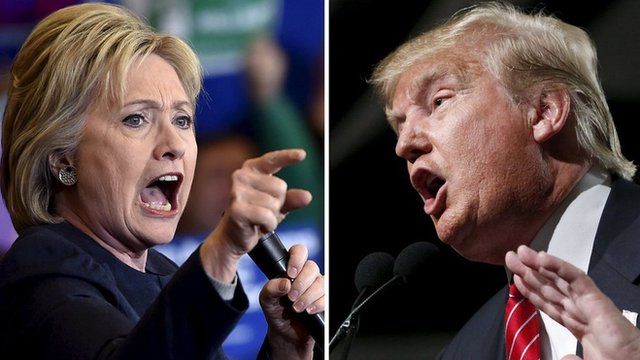Presidential candidates provide insight on science
By Sam Siomko, Staff Writer
We all know that this year’s presidential election has been marked by an incredible amount of opposition between the main candidates. But after being subjected to months of “he-said-she-said” coverage on the news, scientists just wanted to know the facts. This is, of course, what scientists do.
Scientists and engineers from across the country representing about a dozen organizations came up with a list of questions that would determine how each presidential candidate feels about topics in science, once and for all. The twenty questions were presented to all four candidates: Trump, Clinton, Stein, and Johnson, and their responses were posted on sciencedebate.org. And though you may think that the two mainstream candidates’ ideals could not be more different, some of the answers to these questions were surprising.
For instance, based on their responses, both Trump and Clinton had a very positive view of space travel. The candidates expressed interest in furthering space exploration, with Clinton going so far as to suggest a voyage to Mars. Also, both said they are concerned with the recent selective use of scientific data to support special interests. Another striking similarity was that both candidates highly supported the use of vaccines, with Trump stressing the importance of public education about the benefits of being vaccinated.
But everyone cannot always get along, and there were some disparities between the candidates’ responses as well. One of the biggest ones was climate change. Clinton was highly supportive of research to combat climate change and expressed interest in a renewable energy initiative to cut back the United States’ carbon emissions. Trump, on the other hand, was hesitant to accept the validity of climate change and suggested money should be directed to other endeavors, like clean water and disease. Money was a big factor in other answers as well. Trump supported agriculture that was free from government intervention and suggested that agriculture, as an industry, would be sorted out through the market system. Clinton had a hands-on approach, and suggested an increase in funding to farmers to stimulate production and interest from investors. Clinton also proposed better budgeting techniques for health organizations such as the Center for Disease Control and the Department of Health. Trump was again more hesitant and insisted that more research needed to be done on the most efficient ways to spend money while still boosting public health.
It would probably be best for you to go and read their responses for yourself, especially since science will be an important talking point for politicians in the years to come. Regardless of who you will be voting for this year, these issues will not be going away anytime soon. As more discoveries are made and environmental health worsens, it is important to have leader who will listen to the facts in order to make informed decisions.

